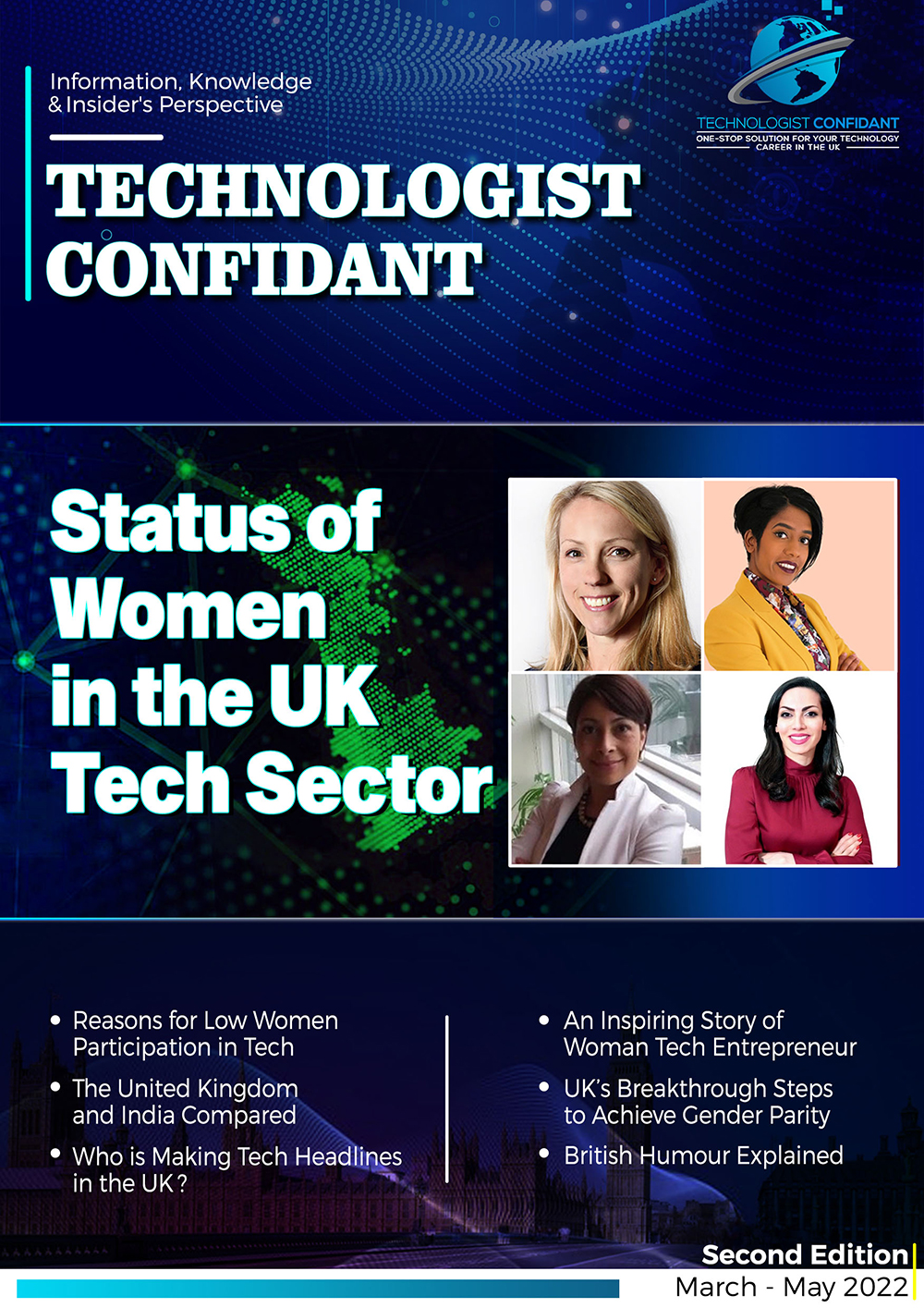In an exclusive interview, our team sat down withMr Rajiiv Saraff, Managing Partner and Head of Consulting at IBU Consulting, Global Growth Markets, to gain insights into the intricacies of the tech recruitment landscape in the United Kingdom. He holds over 17 years of experience in Telecom, Digital Payments, Media, and Entertainment. His expertise extends to skillfully managing UK tech hiring and guiding organisations worldwide in reshaping their business paradigms using strategic insights and innovative technologies. Rajiiv provided valuable insights into the typical interview process, the role of CVs and cover letters, behavioural questions, and technical assessments in the UK's tech job market.
TC: Can you provide an overview of the typical interview process for tech professionals in the UK?
Rajiiv Saraff: The tech recruitment process in the UK is dynamic and multifaceted. It usually begins with an initial screening or telephonic interview, a critical first step. From there, candidates progress through several stages, including technical assessments, coding challenges, and whiteboard sessions. In-person interviews follow, focusing on technical examination and assessing cultural and behavioural fit with the organisation. Even in the contractual job market, cultural alignment and behaviour remain crucial. The final phase often involves interactions with senior leadership or key decision-makers, shaping the candidate's tech career trajectory.
TC: What is the significance of CVs and cover letters in the UK tech job application process?
Rajiiv Saraff: CVs and cover letters play a pivotal role, Aishwarya. A well-crafted CV serves as a canvas to showcase a candidate's relevant skills, experience, and qualifications. It's a carefully curated document to highlight one's professional achievements. Cover letters, on the other hand, offer a unique opportunity to convey a candidate's overall summary, emphasising how they can add value to the organisation while aligning with the company's goals and visions. Customization is key, ensuring that both the CV and cover letter meticulously align with the job description, emphasising the similarity between the candidate's skills and what the role demands.
TC: How about behavioural questions in UK tech interviews?
Rajiiv Saraff: Beyond technical skills, UK tech interviews place a strong emphasis on assessing soft skills. Behavioural questions are integral to this assessment. They aim to evaluate attributes such as teamwork, problem-solving, handling difficult situations, and effective communication. These inquiries often delve deep into past experiences, revealing how candidates have tackled challenges, managed team dynamics, and effectively handled difficult situations.
TC: What kinds of coding challenges, whiteboard sessions, or technical tests are frequently used in UK tech interviews?
Rajiiv Saraff: In the UK, technical assessments cover a broad spectrum of evaluations. Candidates might encounter coding challenges to demonstrate their programming skills. Whiteboard sessions are used to assess problem-solving abilities and technical knowledge in a collaborative setting. Additionally, technical tests may be administered to evaluate proficiency in specific technical domains.
TC: What are the recommended websites to understand standard salary ranges for different tech positions in the UK job market?
Rajiiv Saraff: Certainly, when it comes to understanding tech salaries in the UK, several reliable platforms provide valuable insights. Websites like Glassdoor, Payscale, and LinkedIn Salary Insights are excellent resources. Additionally, the annual Tech Nation report offers comprehensive salary data. These platforms can help tech applicants gain a better understanding of the salary landscape in the UK.
TC: How does the hiring process for mid-level and leadership-level tech roles differ in terms of assessment, evaluation criteria, and expectations?
Rajiiv Saraff: Mid-level and leadership-level tech roles indeed differ significantly. The hiring process for mid-level roles typically involves less scrutiny and focuses more on technical competence. On the other hand, leadership-level roles place a strong emphasis on behavioural and strategic thinking. The criteria and expectations vary considerably. Leadership roles scrutinise attributes such as strategic thinking, leadership qualities, and the ability to define one's professional identity. These roles demand a deep understanding of strategic thinking and significant expertise.
TC: Do you have any suggestions for tech applicants from India seeking opportunities in the UK?
Rajiiv Saraff: Absolutely, for tech applicants from India looking to work in the UK, it's crucial to customise your CV and cover letter to align with the UK market's expectations. Highlight international remote work experience, if applicable, as it can be a significant advantage. Be prepared for video interviews and technical assessments, which are increasingly important. Remember that the UK market values different qualities, so tailor your application materials and approach accordingly.
To sum up, navigating the tech job market in the United Kingdom can be a challenging yet rewarding journey for tech professionals. With the guidance and insights shared by Rajiiv Saraff, we hope that aspiring individuals can better prepare themselves for the rigours of the interview process and the nuances of the UK job market.
As the tech industry continues to evolve and adapt to emerging trends and technologies, one thing remains constant: the importance of skills, adaptability, and the ability to effectively communicate one's value to potential employers. By customising your approach, showcasing your strengths in CVs and cover letters, excelling in technical and behavioural assessments, and understanding the unique dynamics of the UK job market, you can position yourself for success.






